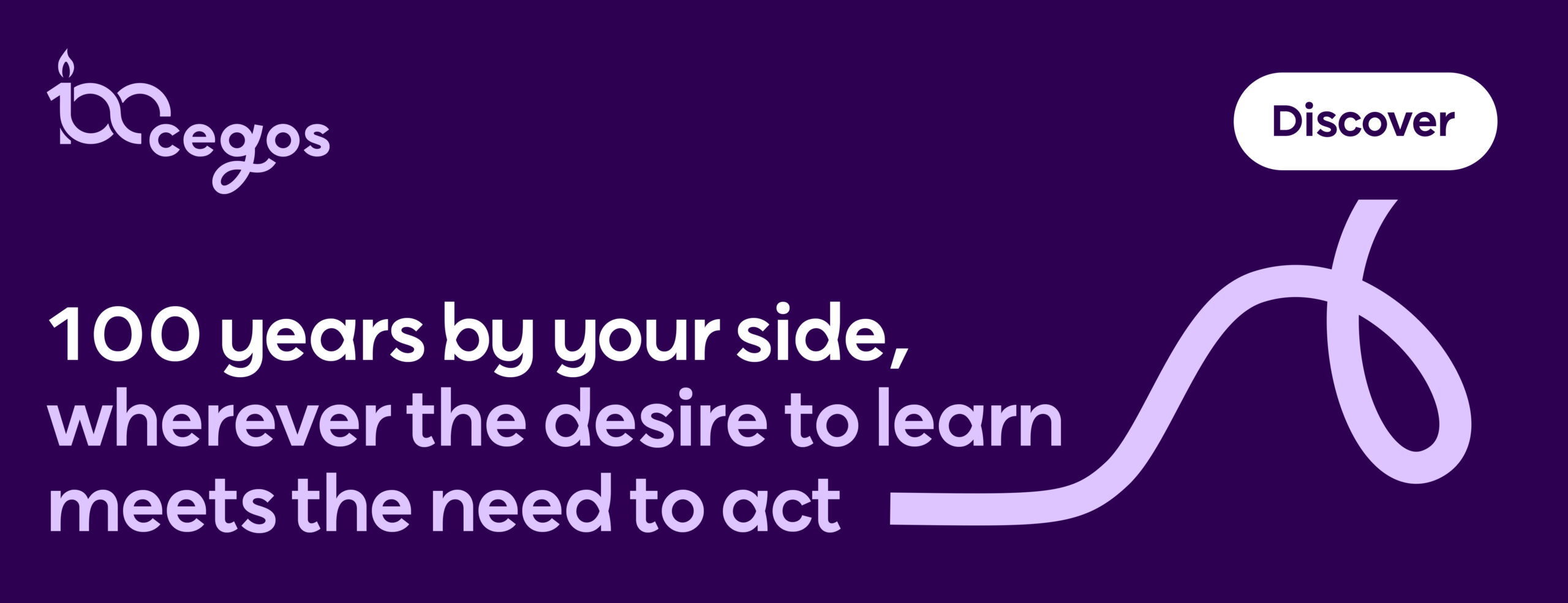
Drive to boost Corporate Social Responsibility | Survey results

Each year, Cegos conducts a ‘Barometer’ survey, where we take the temperature of the training industry to see what is hot and what is not among the global business community.
This year, the focus of the survey was on the issue of Corporate Social Responsibility (CSR), defined by the European Commission as: "the contribution of enterprises to sustainable development", which implies “the voluntary integration of social and environmental concerns into their business operations and their interaction with their stakeholders”. The aim is for organisations to have a positive impact on society, while remaining economically viable.
For the 2023 survey, we interviewed 3,802 international employees and 556 CSR managers across six European countries – France, Germany, Italy, UK, Portugal, and Spain – along with Singapore and Brazil.
The purpose of this Barometer is threefold: to understand how employees perceive the challenges of CSR, to identify the stakeholders involved in their organisation's approach, and to analyse commitments and actions in this area.
Watch this short video to see the headline results.
Three major themes emerge from the survey:
1) Commitment to CSR is only half-hearted
CSR has increased in visibility over recent years, thanks to formal certifications, as well as EU efforts to regulate in favour of CSR provision. Indeed, 85% of employees and 98% of managers believe CSR is a major issue for companies.
That said, it seems CSR is poorly understood by employees. 73% of employees said they were familiar with the concept of CSR, but 46% of them did not know what it meant.
Interestingly, there is significantly more awareness among management compared to employees, suggesting that CSR functions need to raise its profile. 37% of respondents do not know whether their company has a CSR policy or not.
On the flipside, CSR is seen as a vehicle for mobilisation, professional motivation and confidence in the future.
Although CSR is emerging as a great motivator for employees looking for a sense of purpose, more than half of employees are barely engaged. 22% get informed about CSR policy without getting directly involved, while 32% do not feel particularly involved, especially among middle-aged employees.
2) Organisations should work harder to meet internal expectations on CSR
While commitment to CSR is now widely acknowledged, it needs to be stepped up to meet today's challenges and become more effective.
The good news is that 77% of employees and CSR managers now recognise their company's sincere commitment to CSR, compared with 23% who see it as a PR measure.
Even so, 33% of employees and 21% of CSR managers consider the commitment to be 'forced', primarily as a response to unavoidable regulatory requirements, an economic necessity or a benefit for recruitment.
55% of employees expect their company to make a greater commitment to meeting the major global challenges of our time – climate change, diversity and inclusion, clean energy, etc. Interestingly, of the 33% who feel their organisation's commitment is at the right level, CSR managers and younger employees take a more positive view.
3) More training and better communications needed to increase effectiveness of CSR policies
Poor communication on CSR policy within companies appear to negatively impact its effectiveness. Employees say they are inadequately informed about their company's approach, with an average score of 5.7 out of 10. However, this view is not shared by CSR managers, who rate the level of information available to employees at 8!
There are also different perceptions on CSR training. 82% of CSR Managers state their organisation offers such training, whereas only 38% of employees say they are aware of it.
This discrepancy, which is even stronger among employees aged 46-60 and non-managers, may be linked to the poor involvement of direct managers who are supposed to supervise the CSR training of their teams.
The catalogue of CSR training courses already proposed by companies focuses on two main themes: health, safety and quality of life at work on the one hand, and the environment on the other.
The top 5 training courses that are declared planned include: managing psycho-social risk (25%); energy transition (23%), business ethics (21%); reporting CSR/ESG indicators (19%) and raising awareness about the fundamentals of CSR (19%), echoing employees’ priority areas for action.
To improve the effectiveness of the CSR policy, more than 75% of employees believe their organisation should set up specific training courses at all levels. They are in favour of training for executive managers (80%), local managers (79%), employees (78%) and in each business line (76%).
“This Barometer shows that employees – whatever their country, profession or age – are now aware of the great challenges companies need to meet in terms of sustainable development,” says Benoit Felix, Chairman of the Cegos Group. “They consider their organisations' CSR initiatives to be legitimate, but not enough to meet these challenges, and expect practical support on the ways to achieve responsible performance.
“Training is an extraordinary driver. At Cegos we are on the front-line, helping clients raise awareness of CSR by helping managers support everyone dealing with the impact of CSR in their day-to-day lives. Once again, revolution in practices will be based on skills development!”










